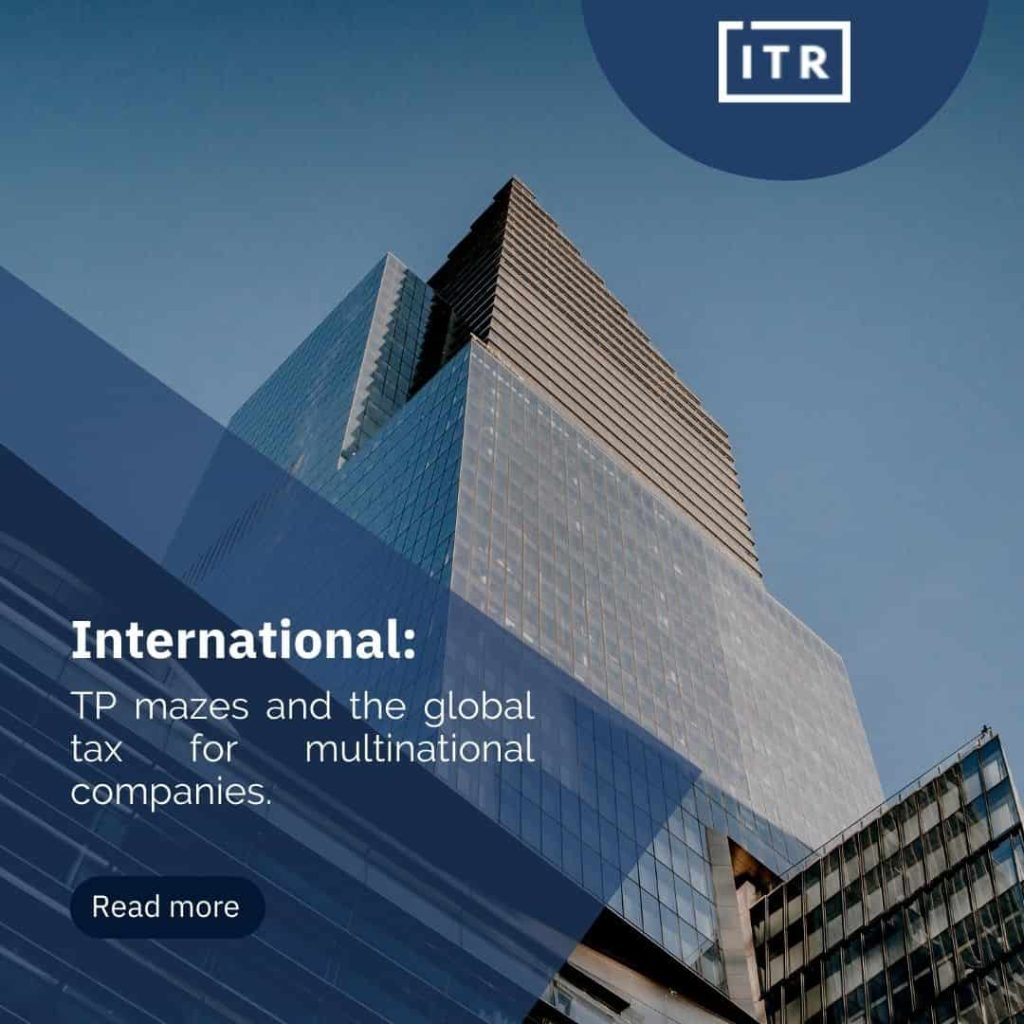Egypt
Introduction
In 2005, Egyptian legislation implemented transfer pricing rules in Article 30 of the Income Tax Law No. 91 of 2005. Likewise, Articles 38, 39, and 40 of the Regulations underwrite the details of the transfer pricing legislation.
The Egyptian Tax Authority published the first version of Transfer Pricing guidance in 2010, which guides the Arm’s Length Principle, the comparability analysis, the election of the most appropriate Transfer Pricing methods, and the mandatory documentation (Master File, Local Report, and the Country-by-Country Report).
Subsequently, on May 22, 2018, Ministerial Decree No. 221 of 2018 was published, amending the Regulations to the Income Tax Law to align the transfer pricing rules established in Egypt with the OECD Transfer Pricing Guidelines.
On October 21, 2018, the Egyptian Minister of Finance issued Ministerial Decree No. 547 of 2018, issuing the new Transfer Pricing Guidelines. The Egyptian Tax Authority published the said Guides two days later on its official website. These are divided into the Principles and Implementation and the Advance Transfer Pricing Agreements.
Arm’s Length Principle
According to the Egyptian Transfer Pricing legislation, the tax authorities have determined four procedures that taxpayers must comply with to price their controlled transactions under the Arm’s Length Principle and/or assess the consistency of their prices with the Arm’s Length Principle.
- To identify all intra-group transactions and to understand the nature of such transactions.
- To select the most appropriate method.
- To apply the selected method.
- To determine the arm’s length amount and introduce a review process to reflect any future changes.
The Arm’s Length Principle applies in transactions between related companies resident in Egypt, as well as transactions between companies resident in Egypt and their non-resident related companies.
Related Parties
Article 1 of the Regulation of the Sole Tax Procedure Law No. 206 of 2020, as amended by Law No. 211 of 2020, defines related parties as any person with a relationship with a taxpayer, affecting, directly or indirectly, whether in management, control or ownership, the determination of the taxable income. Generally, both will be considered related parties if their relationship allows one or both parties to make dispositions according to requests, requirements, directions, or preferences of the other party or a third party.
The following persons are Related Parties:
- Relatives: Husband, wife, ascendants, and descendants,
- Partnerships and their general or limited partners,
- Capital partnerships and the person who owns, directly or indirectly, at least 50% of the voting or management rights of the corporation, the dividends, or the capital rights,
- Two or more companies in which a third person owns or acquires at least 50% of voting or management rights of both companies, their dividends, or capital rights.
Transfer Pricing Methods
The Transfer Pricing methods are regulated in Article 39 of the Income Tax Law Regulation N°91 of 2005 and Chapter 4 of Ministerial Decree N°547 of 2018.
These are the accepted methods:
- Comparable Uncontrolled Price (CUP) method
- Cost Plus Method
- Resale Price Method
- Transactional Net Margin Method (TNMM)
- Profit Split method
On the other hand, the new Transfer Pricing guidelines allow taxpayers to apply other methods if none of the above ones can be employed. Hierarchy is not a requirement in the application of transfer pricing methods.
Comparability Analysis
The Egyptian Tax Authority specifies the following factors in the transfer pricing guidelines: Functional analysis, contractual terms and conditions, economic circumstances, business strategy, and government policies.
In this regard, taxpayers must perform a comparability analysis to select properly comparable uncontrolled transactions. Therefore, they can establish arm’s length prices for their controlled transactions.
Advance Transfer Pricing Agreements (APAs)
The APA system provides Egyptian taxpayers with a benefit by agreeing in advance with the Egyptian Tax Authority on the methods to be followed by the taxpayer to determine arm’s length adjustments for tax purposes when dealing with related party transactions.
Initially, the Egyptian Tax Authority will only accept applications for unilateral APAs. However, applications for bilateral and multilateral APAs may also be accepted eventually.
The APA system aims to facilitate a collective process to solve potential transfer pricing disputes in advance.
Mandatory Transfer Pricing Documentation
The obligation to file Local Report and Master File is assigned to those multinational companies with consolidated annual accounts of 8 million Egyptian Pounds.
Local Report
The Local Report must be drafted at the local entity level and filed to the Egyptian Tax Authority within two months of the annual corporate income tax return. It should contain the following documentation:
- Identification of the controlled transactions and their nature.
- The nature of the industry or market the taxpayer operates in.
- The taxpayer’s business policies and strategies.
- The controlled reviewed transactions.
- Comparable companies.
- The selection of the most appropriate method.
- The identification of the transfer pricing method used.
- The analysis of the reliability of the data used.
- The applied Transfer Pricing method.
- The determination of the Arm’s Length price.
The Local Report aims to provide detailed information related to the controlled transactions of a local taxpayer and should include supplementary information in the Master File.
Master File
The Master File should be prepared at the level of the ultimate parent of the group and contain the organizational structure, commercial activities, financial activity, intangibles, and financial and tax positions of the group as a whole.
On the other hand, it must be filed to the Egyptian Tax Authority before the due date of the parent entity’s tax return in its local jurisdiction. If the ultimate parent company is not required to file a tax return in its country, the Master File should be submitted to the Administration along with the Local Report.
Country by Country Report
The filing rules for Country-by-Country Reporting have been set out in the New Transfer Pricing Guidelines of the Egyptian country. These are as follows:
- Egyptian parent groups with one or more foreign subsidiaries, with an annual consolidated group revenue equal to or exceeding EGP 3000 million (approximately € 145 million), shall prepare and file a report to the Tax Authority.
- Egyptian subsidiaries of foreign parent groups will be subject to the OECD threshold of €750 million, and they should file a report in the jurisdiction of tax residence of the ultimate parent entity.
The Country-by-Country Report requires jurisdiction-wide information regarding the total allocation of income from global associated companies, taxes paid, and the location of the key economic activity where the group operates. They must report their employee number, reported capital, retained earnings, and tangible assets in each tax jurisdiction.
The due date for filing the Country-by-Country Report will generally be the end of the fiscal year of reporting. However, the due date for the first year will be 12 months from the end of the fiscal year displayed on the report.
Consequently, the first due date for filing in Egypt was December 31, 2019, for the fiscal year ending December 31, 2018.
Penalties
The Egyptian law has imposed a financial penalty ranging from EGP 3,000 to EGP 50,000, applicable in case of non-compliance with the requirements to file the three transfer pricing declarations. This penalty could be doubled or tripled in case of repeated offenses.
Taxpayers who fail to report their related transactions (in the relevant section of the corporate income tax return) will be subject to a penalty of 1% on the total value of the related transactions in the respective fiscal year.
In addition, failure to file the Master File will be subject to 3%, and failure to file the Local Report will be subject to 3%. If a taxpayer fails to file the Country-by-Country Report, Law No. 211 penalizes 2% of the value of related party transactions.
Source: Egytian Tax Authority (ETA)
<script>
/*
Author: Wolfgang Hartl
Author URI: https://my-webcraftdesign.at/
DOCS: https://my-webcraftdesign.at/tutorial/read-more-read-less-toggle-in-bricksbuilder/
*/
function WCD_rmrl(options) {
const readLessText = options.readLessText;
const readMoreText = options.readMoreText;
const rmrlContent = document.querySelectorAll("[wcd_rmrl_percentage]");
rmrlContent.forEach((element) => {
// INITIAL SETUP (define height, overflow and attributes)
element.style.overflow = "hidden";
element.setAttribute("wcd_rmrl_max", element.clientHeight + "px");
var percentage = element.getAttribute("wcd_rmrl_percentage");
var height = element.clientHeight;
height = Math.round((height / 100) * percentage) + "px";
element.setAttribute("wcd_rmrl_min", height);
element.style.height = height;
//ASSIGN CLICK EVENT TO TRIGGER
trigger = element.nextSibling;
trigger.addEventListener("click", function () {
if (element.style.height == element.getAttribute("wcd_rmrl_min")) {
element.style.height = element.getAttribute("wcd_rmrl_max");
this.childNodes.forEach((node) => {
if (node.nodeValue !== null) {
node.nodeValue = readLessText;
}
});
} else {
element.style.height = element.getAttribute("wcd_rmrl_min");
this.childNodes.forEach((node) => {
if (node.nodeValue !== null) {
node.nodeValue = readMoreText;
}
});
}
});
});
}
const rmrl = new WCD_rmrl({
readLessText : 'Read Less',
readMoreText : 'Read More',
});
</script>External Articles
Below is a list of articles written by our staff and published in international publications.





